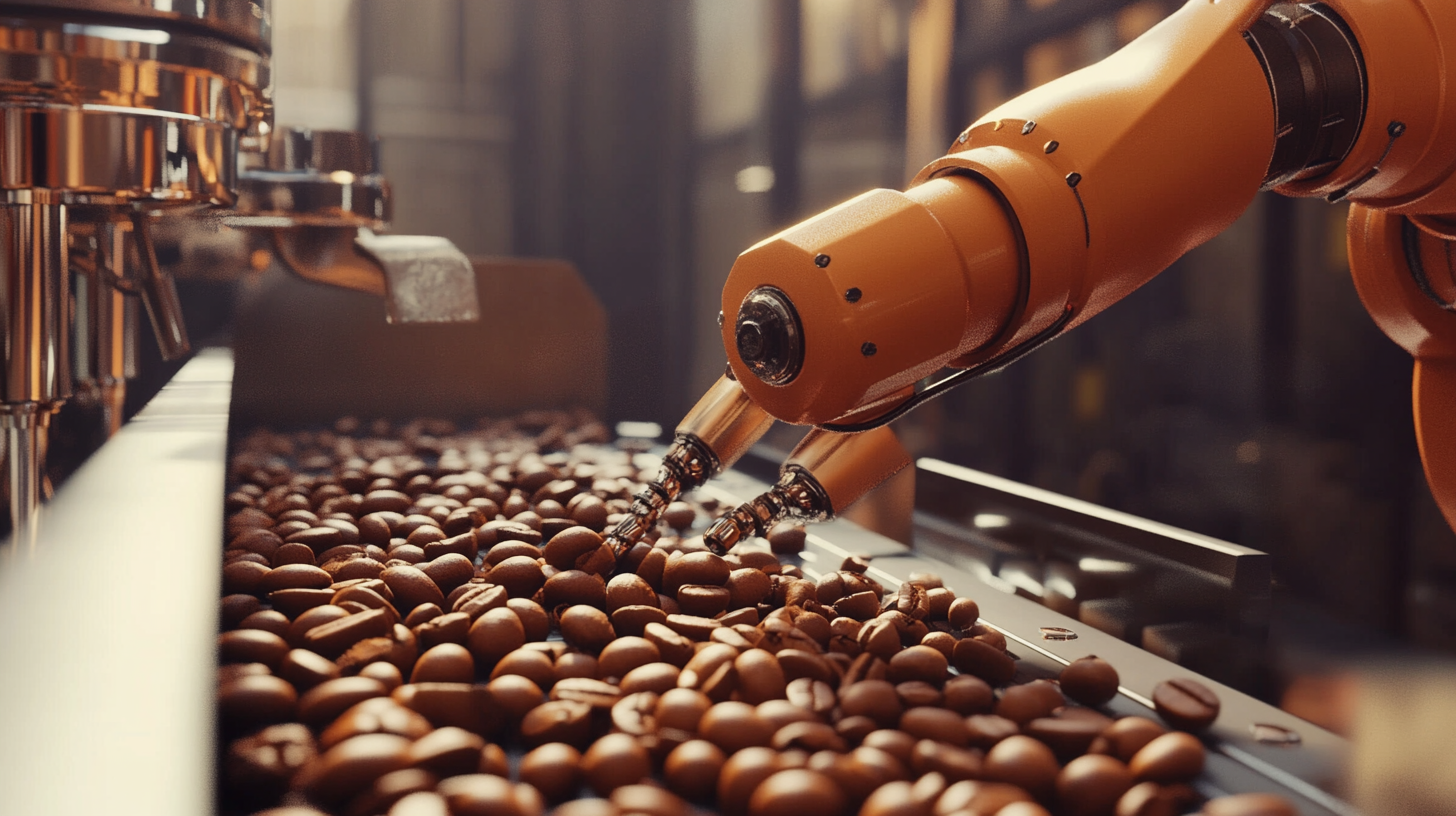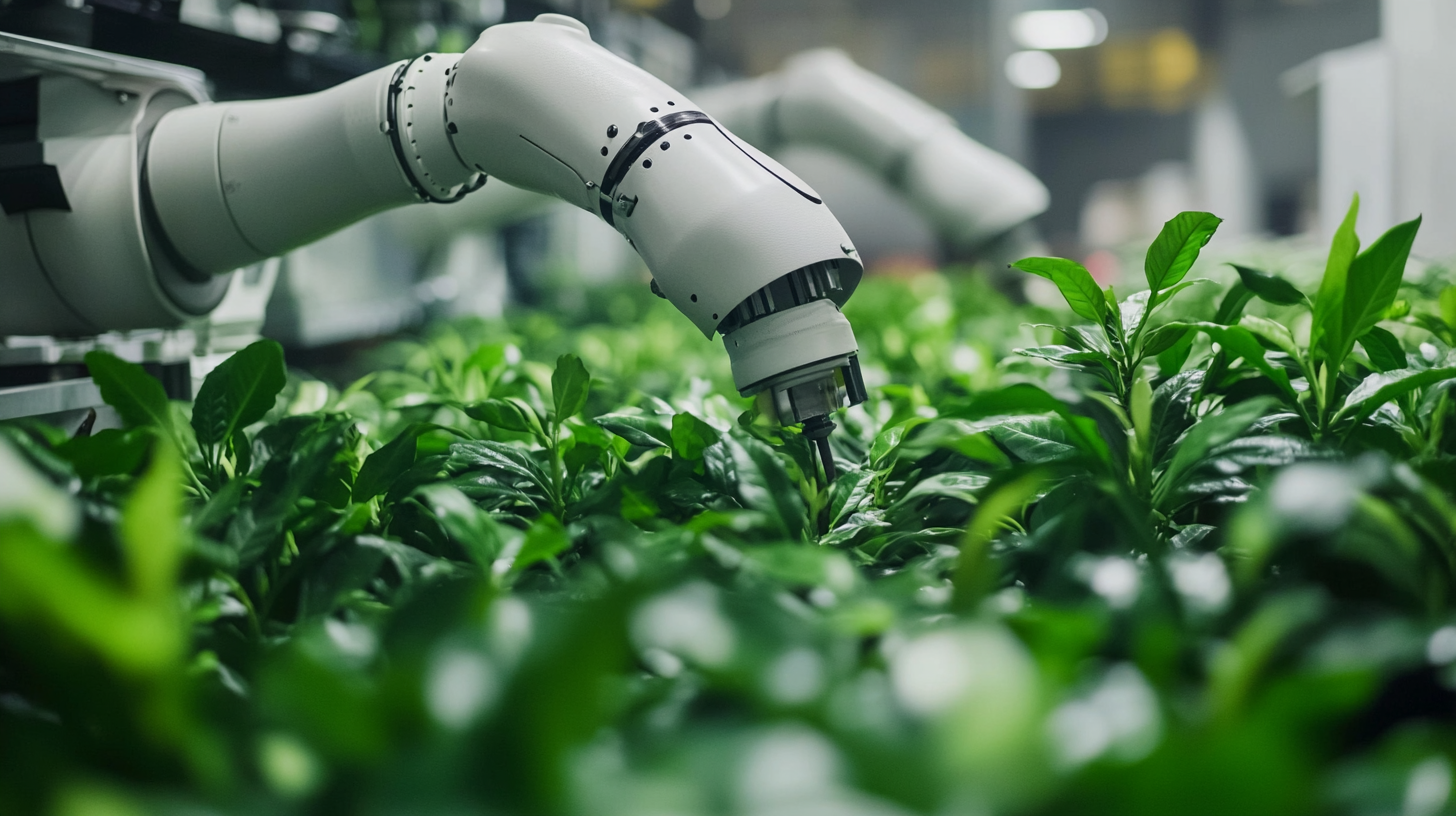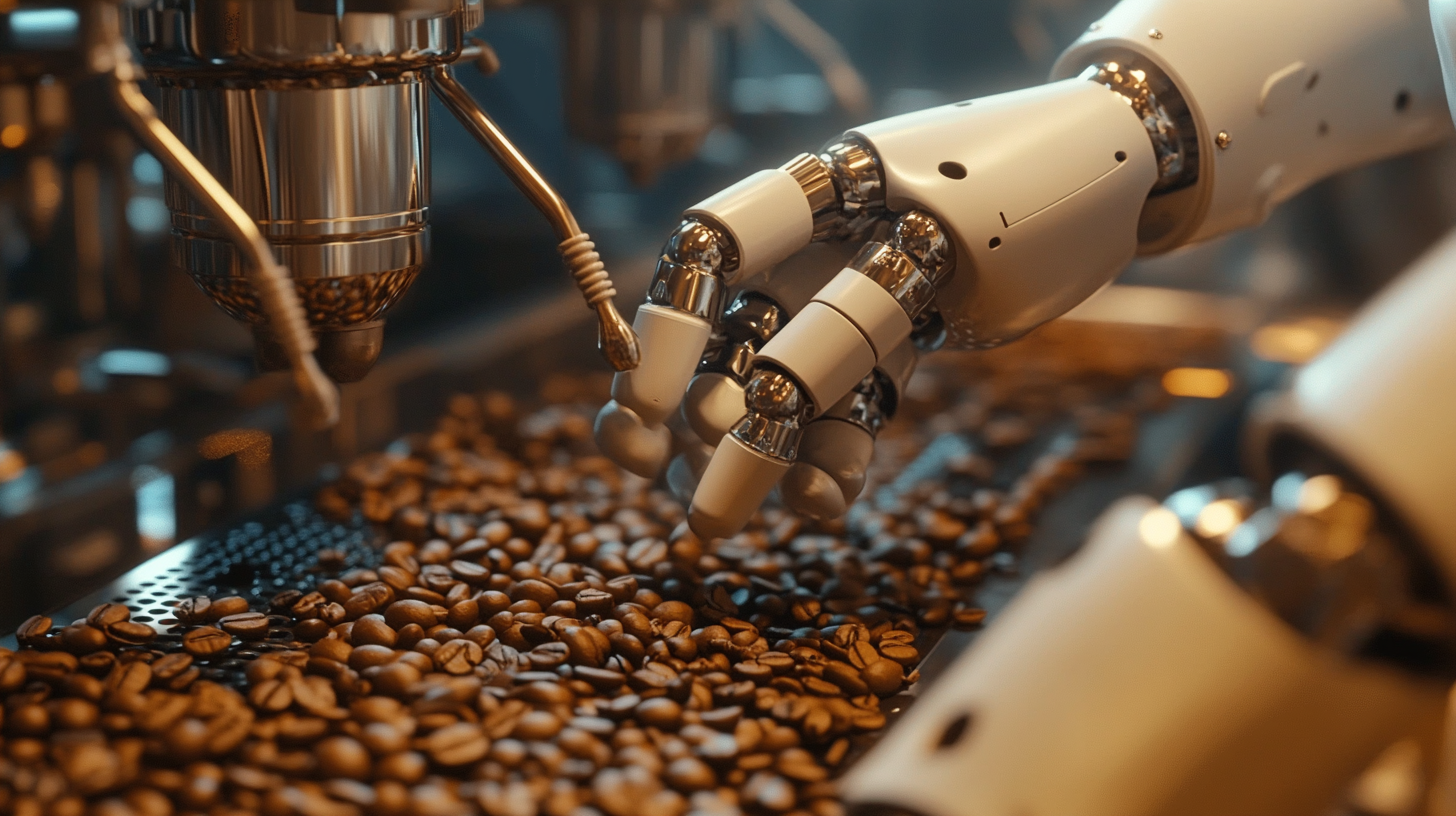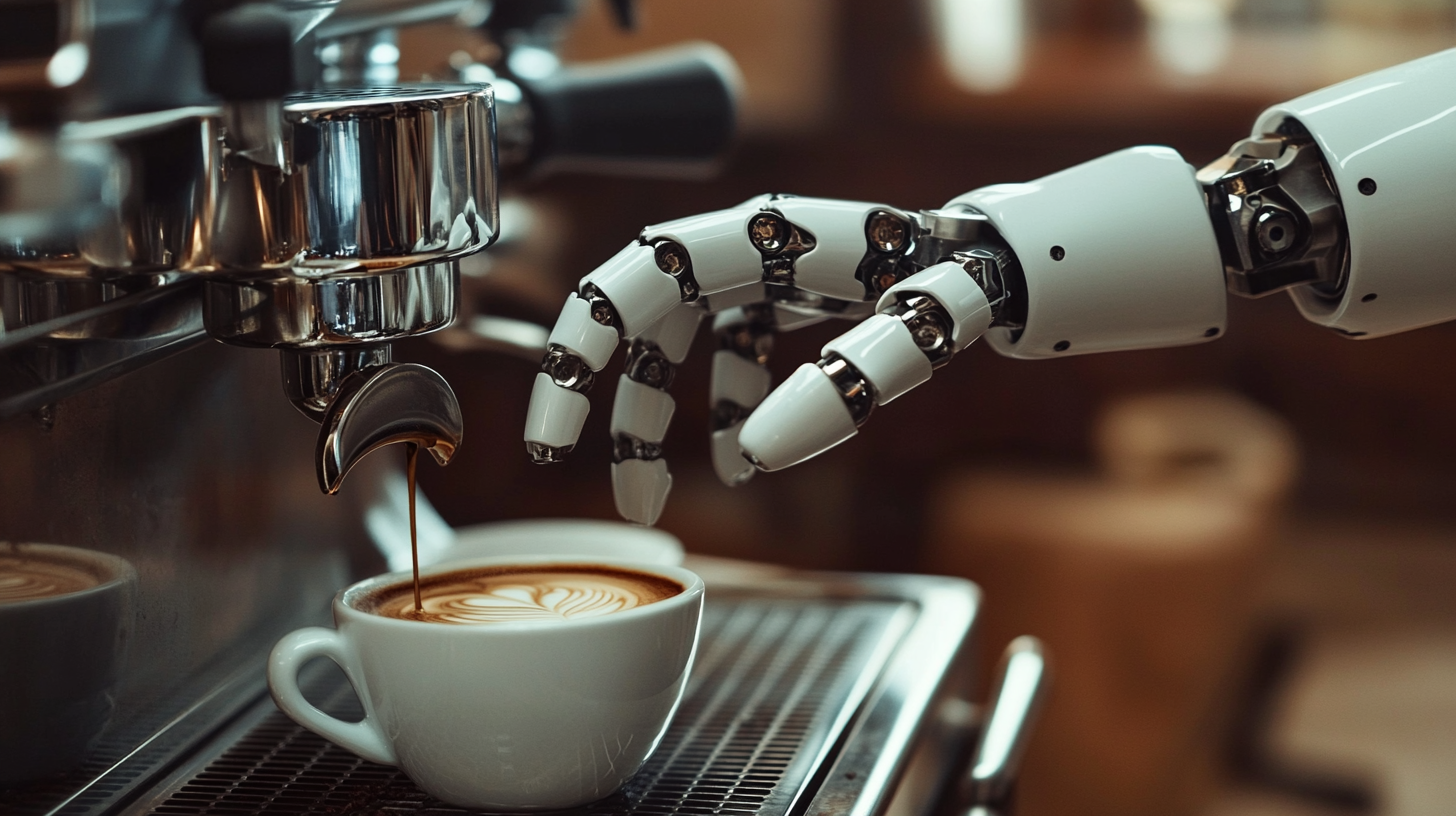What are the Benefits of Using Coffee Robots in Modern Coffee Production
In the ever-evolving landscape of modern agriculture, the emergence of technology has significantly transformed traditional practices, and coffee production is no exception. The introduction of the Coffee Robot not only enhances efficiency but also offers a multitude of benefits that address the challenges faced by coffee growers worldwide. As the demand for high-quality coffee increases, the need for innovative solutions becomes paramount, positioning Coffee Robots as key players in the industry.
Coffee Robots are designed to streamline various aspects of coffee production, from harvesting to processing, thereby reducing labor costs and improving productivity. These robotic systems are equipped with advanced sensors and artificial intelligence, allowing them to operate autonomously and adapt to complex environments. In this blog, we will delve into the numerous advantages of integrating Coffee Robots in modern coffee production, exploring how they contribute to sustainability, quality control, and economic viability in a sector that is crucial to the livelihoods of millions.

The Evolution of Coffee Production and the Role of Automation
The evolution of coffee production has been significantly influenced by technological advancements, particularly automation. Over the last few decades, the global coffee market has expanded dramatically, with production reaching over 170 million 60-kilogram bags in 2020, according to the International Coffee Organization. As the demand for high-quality coffee rises, so does the necessity for more efficient and consistent production methods. Automation through the use of coffee robots has emerged as a pivotal solution to meet these challenges, enabling producers to optimize processes while maintaining quality. One of the key benefits of coffee robots is their ability to enhance precision in farming and processing. Automated systems equipped with advanced sensors and algorithms can monitor crop health, soil conditions, and even weather patterns in real time. This data-driven approach allows farmers to make informed decisions regarding irrigation, fertilization, and harvesting. A report by McKinsey & Company highlights that implementing automation in agriculture could increase productivity by up to 30% and significantly reduce operational costs. Furthermore, coffee robots play a crucial role in addressing labor shortages that many coffee-growing regions face. With an average workforce decline of 25% in some areas, as reported by the Food and Agriculture Organization, reliance on automation can mitigate these challenges. Robots can perform repetitive tasks such as picking, sorting, and packaging, thus freeing human labor for more skilled activities. This not only increases efficiency but also helps stabilize coffee production in regions where labor is increasingly scarce. As we look to the future of coffee production, the integration of automation represents a crucial step towards sustainable and efficient practices that can meet global demands. The evolution of coffee production, powered by robotic technology, is reshaping the industry and ensuring that quality remains uncompromised in an ever-competitive market.

Enhancing Efficiency: How Coffee Robots Streamline Production Processes
In the modern coffee production landscape, coffee robots have emerged as game-changers, dramatically enhancing efficiency throughout various stages of the process. By automating routine tasks such as sorting, grinding, and brewing, these robots minimize human error and optimize productivity. With the ability to operate continuously, coffee robots increase output without the fatigue associated with manual labor, ensuring a consistent quality in every batch produced.
Furthermore, coffee robots can be programmed to execute specific tasks with precision, allowing for greater control over the production process. This technology enables producers to focus on fine-tuning flavors and experimenting with new blends, as much of the menial labor is handled by machines. The result is a streamlined production workflow that not only saves time but also encourages innovation and creativity within the industry.
Additionally, the integration of robots helps companies respond swiftly to market demand. With advanced analytics and real-time monitoring, coffee robots can adjust production rates based on sales forecasts and seasonal trends. This adaptability ensures that producers can meet consumer preferences without overextending their resources. As coffee robots continue to evolve, their role in revolutionizing coffee production becomes increasingly significant, paving the way for a more efficient and sustainable future in the industry.

Improving Quality Control: The Precision of Robotic Coffee Harvesting
The rise of coffee robots in modern coffee production represents a significant leap forward in agricultural technology, particularly when it comes to quality control. One of the standout benefits of robotic coffee harvesting is the precision it brings to the process. With advanced sensors and algorithms, these robots can identify ripe coffee cherries with remarkable accuracy, ensuring that only the best fruit is picked. This level of precision not only enhances the quality of the coffee but also reduces the chances of imperfections that can arise from traditional manual harvesting methods.
Moreover, robotic harvesting allows for a more consistent approach to quality control. Unlike human pickers, who may vary in skill and experience, robots operate with uniform efficiency. This consistency translates into a higher-grade product with fewer defects, which is essential in an industry where flavor and aroma are paramount. By minimizing the risk of overripe or unripe cherries being mixed in with the harvest, coffee producers can satisfy the increasing demand for premium beans, ultimately elevating their brand reputation in a competitive market.
Additionally, the integration of robotics naturally leads to better data collection throughout the harvesting process. These robots can gather real-time information about the condition of coffee plants and environmental factors, providing valuable insights for growers. This data-driven approach not only allows for immediate adjustments to harvesting strategies but also contributes to long-term sustainability practices in coffee farming. By improving quality control and increasing efficiency, robotic technology is transforming the landscape of coffee production in ways that simply weren't possible before.

Sustainability and Cost-Effectiveness: Long-term Benefits of Coffee Robotics
As the coffee industry continues to evolve, the integration of robotics has emerged as a transformative force, particularly in terms of sustainability and cost-effectiveness. Coffee robots, designed to automate various stages of production, significantly reduce the reliance on manual labor. This not only helps address the challenges of labor shortages but also enhances efficiency and precision in the production process. By utilizing advanced technology, farmers can monitor crop health and yield more accurately, leading to optimized resource use and minimized waste.
Moreover, coffee robotics promote sustainable farming practices. Automated systems can better manage water usage and reduce chemical inputs, leading to a lower environmental footprint. With the ability to collect and analyze data in real-time, these robots empower farmers to make informed decisions that enhance the quality of their crops while conserving natural resources. This shift towards eco-friendly practices is crucial as consumers increasingly seek sustainably sourced products, and it aligns with the growing global emphasis on reducing the impact of agriculture on the environment.
In terms of cost-effectiveness, the initial investment in coffee robotics may be substantial, but the long-term savings are significant. By automating labor-intensive processes, farms can reduce operational costs associated with hiring and training workers. Additionally, robotics can lead to higher productivity, enabling farmers to scale their operations without proportional increases in expenses. As coffee production becomes more competitive, those who adopt robotics will find themselves at a distinct advantage, ensuring their place in an evolving market while fostering a more sustainable future for coffee cultivation.
The Future of Coffee: Embracing Technology for Innovation in Brewing
The future of coffee production is being significantly transformed by the integration of advanced technologies, particularly through the use of robotics and artificial intelligence. The emergence of coffee robots represents an exciting shift towards automation that can streamline the brewing process, enhance consistency, and reduce labor costs. By embracing these innovations, coffee producers are poised to meet the increasing global demand for high-quality beverages. According to industry reports, the global coffee market is anticipated to grow by billions in revenue over the next few years, emphasizing the necessity for efficient production techniques.
In recent developments, a major player in the coffee industry has invested heavily in technology, establishing a company focused on AI solutions to boost sales and operational efficiency. With a substantial capitalization, this initiative demonstrates a commitment to leveraging cutting-edge technologies not only to optimize workflows but also to elevate the overall customer experience. Such investments in AI can lead to significant improvements in inventory management, predictive analytics, and personalized marketing strategies, aligning with consumer preferences more effectively.
The utilization of coffee robots not only promises to enhance the production process but also paves the way for innovative brewing methods that can cater to diverse palates. By harnessing the power of technology, coffee producers can maintain a competitive edge in an increasingly crowded marketplace, ensuring quality and sustainability. Reports indicate that incorporating robotics could reduce production time by up to 30%, offering a crucial advantage as consumer demands continue to escalate.
